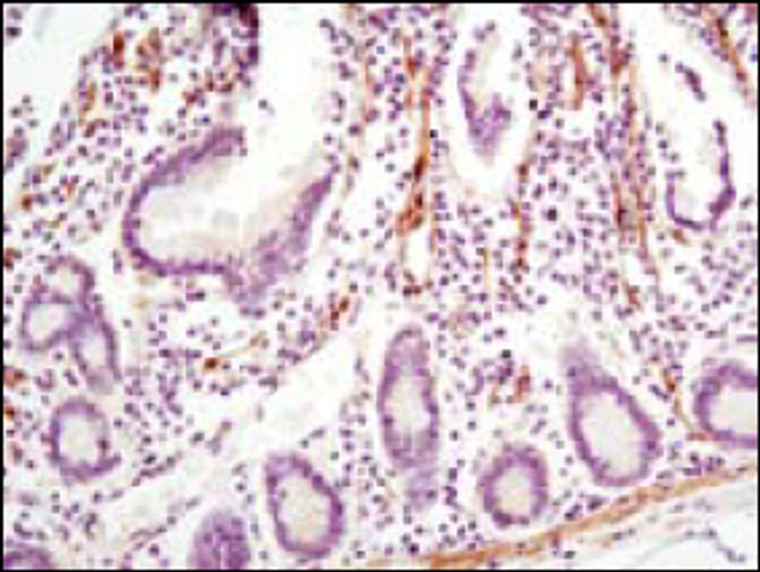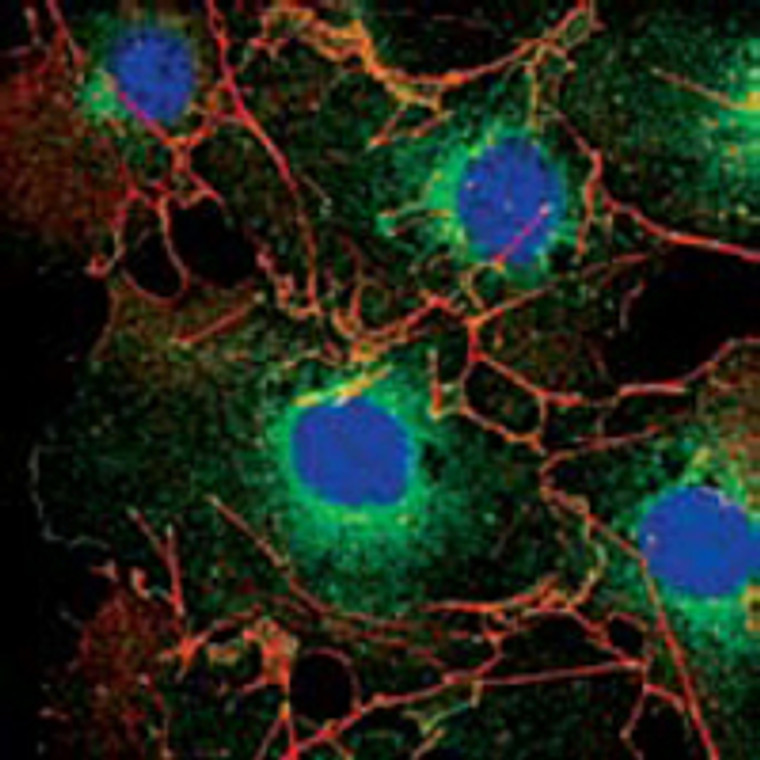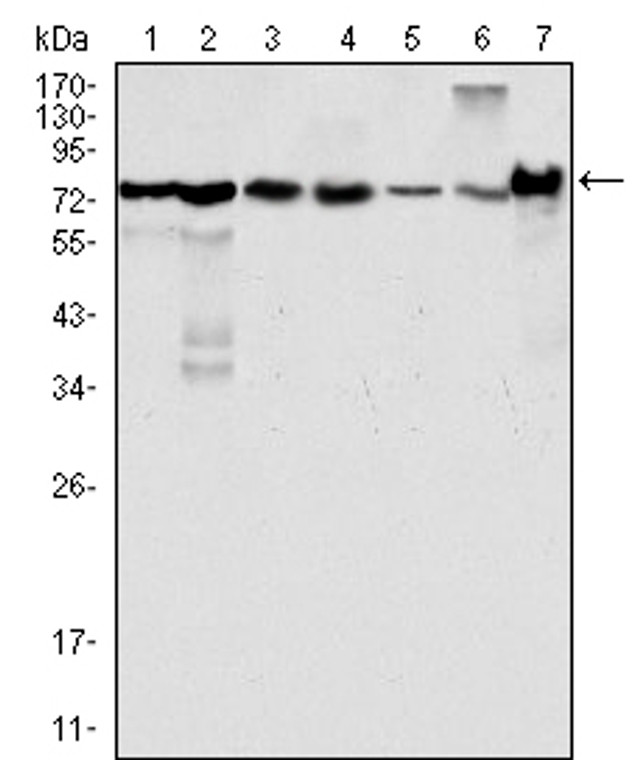General Info
| Host: | Mouse |
| Applications: | WB/IHC/IF/ELISA |
| Reactivity: | Human/Mouse/Monkey/Hamster |
| Note: | STRICTLY FOR FURTHER SCIENTIFIC RESEARCH USE ONLY (RUO). MUST NOT TO BE USED IN DIAGNOSTIC OR THERAPEUTIC APPLICATIONS. |
| Short Description: | Mouse monoclonal antibody anti-Lipoma-preferred partner is suitable for use in Western Blot, Immunohistochemistry, Immunofluorescence and ELISA research applications. |
| Clonality: | Monoclonal |
| Clone ID: | 8B3A11 |
| Conjugation: | Unconjugated |
| Isotype: | IgG1 |
| Formulation: | Liquid in PBS containing 0.03% Sodium Azide, 0.5% BSA, 50% Glycerol. |
| Purification: | Affinity purification |
| Dilution Range: | WB 1:500-1:2000IHC 1:200-1:1000IF 1:200-1:1000ELISA 1:10000 |
| Storage Instruction: | Store at-20°C for up to 1 year from the date of receipt, and avoid repeat freeze-thaw cycles. |
Information
| Gene Symbol: | LPP |
| Gene ID: | 4026 |
| Uniprot ID: | LPP_HUMAN |
| Specificity: | LPP Monoclonal Antibody detects endogenous levels of LPP protein. |
| Immunogen: | Purified recombinant fragment of human LPP expressed in E. Coli. |
Description
| Function | May play a structural role at sites of cell adhesion in maintaining cell shape and motility. In addition to these structural functions, it may also be implicated in signaling events and activation of gene transcription. May be involved in signal transduction from cell adhesion sites to the nucleus allowing successful integration of signals arising from soluble factors and cell-cell adhesion sites. Also suggested to serve as a scaffold protein upon which distinct protein complexes are assembled in the cytoplasm and in the nucleus. |
| Protein Name | Lipoma-Preferred PartnerLim Domain-Containing Preferred Translocation Partner In Lipoma |
| Cellular Localisation | NucleusCytoplasmCell JunctionCell MembraneFound In The NucleusIn The Cytoplasm And At Cell Adhesion SitesShuttles Between The Cytoplasm And The NucleusIt Has Been Found In Sites Of Cell Adhesion Such As Cell-To-Cell Contact And Focal Adhesion Which Are Membrane Attachment Sites Of Cells To The Extracellular MatrixMainly Nuclear When Fused With Hmga2/Hmgic And Kmt2a/Mll1 |
| Alternative Antibody Names | Anti-Lipoma-Preferred Partner antibodyAnti-Lim Domain-Containing Preferred Translocation Partner In Lipoma antibodyAnti-LPP antibody |
Information sourced from Uniprot.org
12 months for antibodies. 6 months for ELISA Kits. Please see website T&Cs for further guidance






